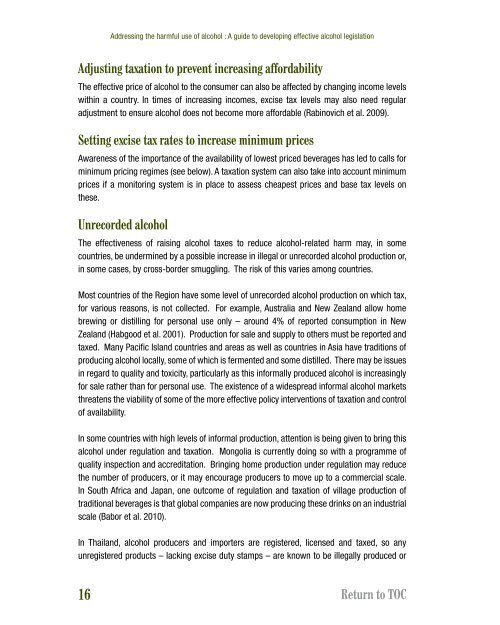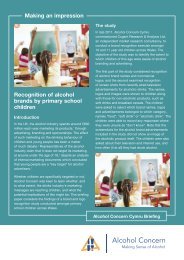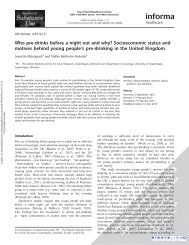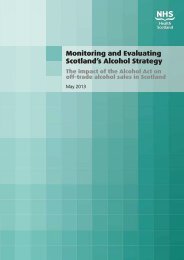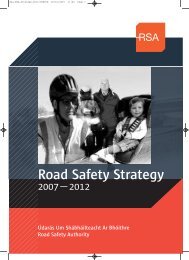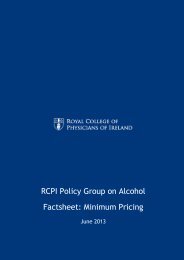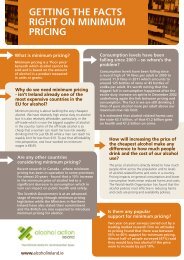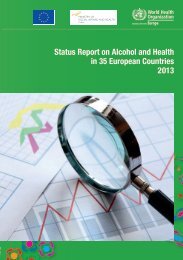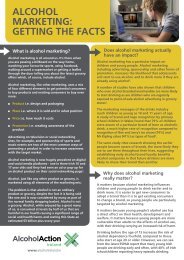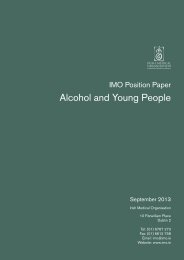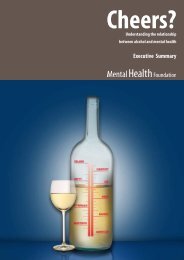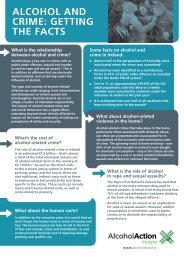Addressing the harmful use of alcohol - WHO Western Pacific Region
Addressing the harmful use of alcohol - WHO Western Pacific Region
Addressing the harmful use of alcohol - WHO Western Pacific Region
Create successful ePaper yourself
Turn your PDF publications into a flip-book with our unique Google optimized e-Paper software.
<strong>Addressing</strong> <strong>the</strong> <strong>harmful</strong> <strong>use</strong> <strong>of</strong> <strong>alcohol</strong> : A guide to developing effective <strong>alcohol</strong> legislation<br />
Adjusting taxation to prevent increasing affordability<br />
The effective price <strong>of</strong> <strong>alcohol</strong> to <strong>the</strong> consumer can also be affected by changing income levels<br />
within a country. In times <strong>of</strong> increasing incomes, excise tax levels may also need regular<br />
adjustment to ensure <strong>alcohol</strong> does not become more affordable (Rabinovich et al. 2009).<br />
Setting excise tax rates to increase minimum prices<br />
Awareness <strong>of</strong> <strong>the</strong> importance <strong>of</strong> <strong>the</strong> availability <strong>of</strong> lowest priced beverages has led to calls for<br />
minimum pricing regimes (see below). A taxation system can also take into account minimum<br />
prices if a monitoring system is in place to assess cheapest prices and base tax levels on<br />
<strong>the</strong>se.<br />
Unrecorded <strong>alcohol</strong><br />
The effectiveness <strong>of</strong> raising <strong>alcohol</strong> taxes to reduce <strong>alcohol</strong>-related harm may, in some<br />
countries, be undermined by a possible increase in illegal or unrecorded <strong>alcohol</strong> production or,<br />
in some cases, by cross-border smuggling. The risk <strong>of</strong> this varies among countries.<br />
Most countries <strong>of</strong> <strong>the</strong> <strong>Region</strong> have some level <strong>of</strong> unrecorded <strong>alcohol</strong> production on which tax,<br />
for various reasons, is not collected. For example, Australia and New Zealand allow home<br />
brewing or distilling for personal <strong>use</strong> only – around 4% <strong>of</strong> reported consumption in New<br />
Zealand (Habgood et al. 2001). Production for sale and supply to o<strong>the</strong>rs must be reported and<br />
taxed. Many <strong>Pacific</strong> Island countries and areas as well as countries in Asia have traditions <strong>of</strong><br />
producing <strong>alcohol</strong> locally, some <strong>of</strong> which is fermented and some distilled. There may be issues<br />
in regard to quality and toxicity, particularly as this informally produced <strong>alcohol</strong> is increasingly<br />
for sale ra<strong>the</strong>r than for personal <strong>use</strong>. The existence <strong>of</strong> a widespread informal <strong>alcohol</strong> markets<br />
threatens <strong>the</strong> viability <strong>of</strong> some <strong>of</strong> <strong>the</strong> more effective policy interventions <strong>of</strong> taxation and control<br />
<strong>of</strong> availability.<br />
In some countries with high levels <strong>of</strong> informal production, attention is being given to bring this<br />
<strong>alcohol</strong> under regulation and taxation. Mongolia is currently doing so with a programme <strong>of</strong><br />
quality inspection and accreditation. Bringing home production under regulation may reduce<br />
<strong>the</strong> number <strong>of</strong> producers, or it may encourage producers to move up to a commercial scale.<br />
In South Africa and Japan, one outcome <strong>of</strong> regulation and taxation <strong>of</strong> village production <strong>of</strong><br />
traditional beverages is that global companies are now producing <strong>the</strong>se drinks on an industrial<br />
scale (Babor et al. 2010).<br />
In Thailand, <strong>alcohol</strong> producers and importers are registered, licensed and taxed, so any<br />
unregistered products – lacking excise duty stamps – are known to be illegally produced or<br />
16 Return to TOC


